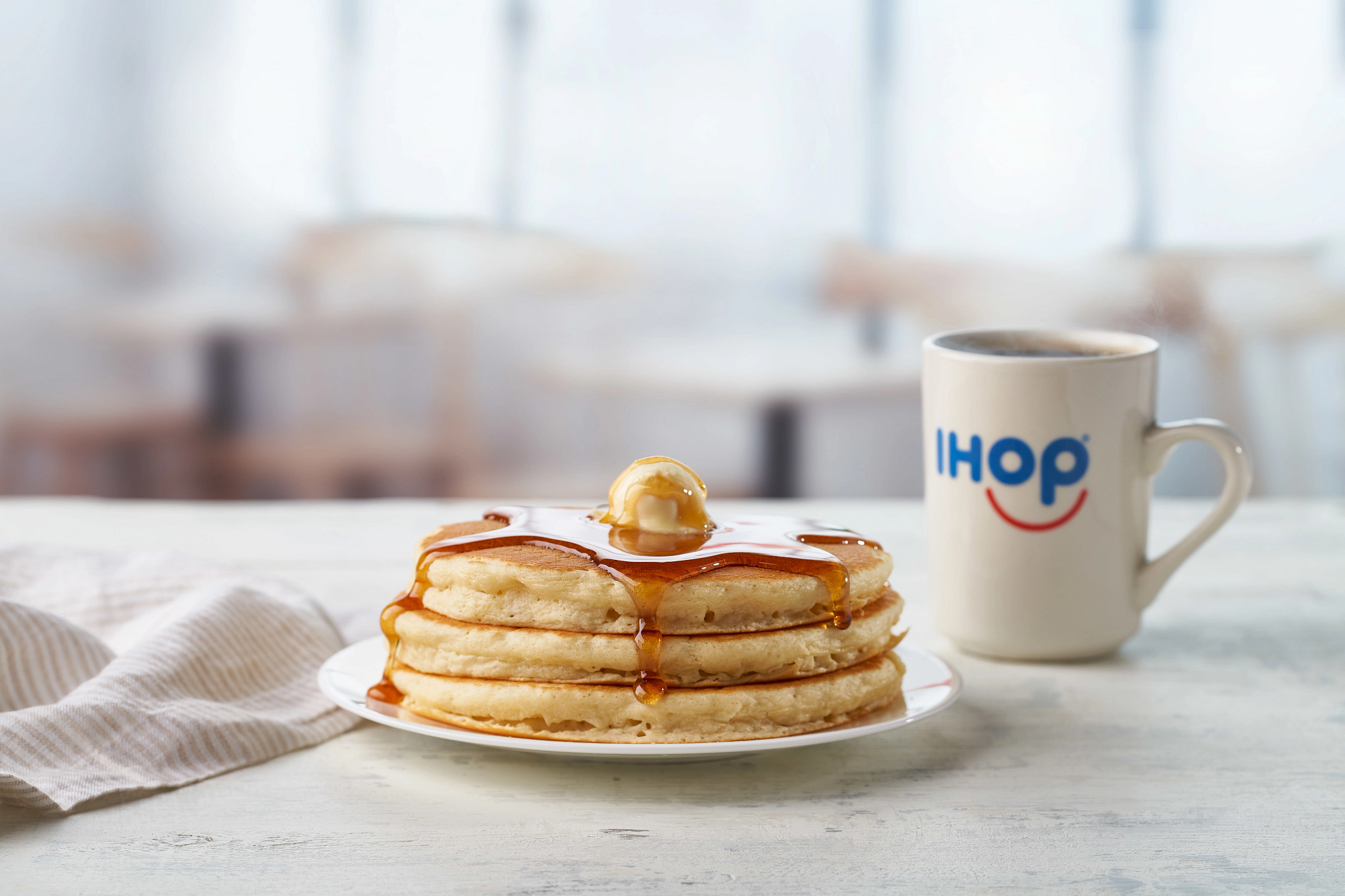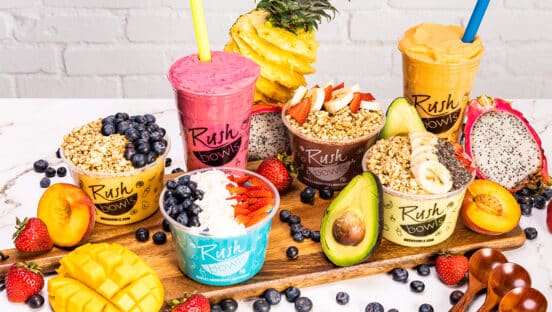Sponsored by the U.S. Highbush Blueberry Council.
In a tough business climate, the stakes are high for quick-service restaurants. Not only are away-from-home dining options growing, but so is the availability of healthy, convenient food that consumers can order online or pick up from the grocery store. This is creating a more demanding consumer-base. Pair that with rising operational costs, and headaches abound. But one simple ingredient could help with all the growing demands quick-service operators face—frozen blueberries.
While they may not be the first ingredient to come to mind when one tries to find more ways to be operationally efficient, blueberries, especially individually quick frozen (IQF) varieties, provide restaurants with a bevy of benefits to help operators achieve their goals.
“Blueberries already have such a great reputation in the media as being a great fruit choice,” says Chef Lars Kronmark, an instructor, at the Culinary Institute of America at Greystone. “On menus, they can be paired with healthy whole grains and all kinds of foods so that quick-service customers enjoy them in virtually any dish.”
Though blueberries are often associated with dessert, frozen blueberries can be added to any menu category from breakfast and dessert to savory entrees, sauces, and beverages. Kronmark says blueberries can be used in tart and savory applications, such as popovers or breads. Beyond that, he also suggests serving them in salads; with smoked meats, like chicken or turkey on crostata with queso fresco or feta cheese; or inside wraps with crispy iceberg lettuce and a hummus or bean dip.
Within the growing ethnic cuisine trend, the fruit has even more varied applications that some may not be aware of. For example, Kronmark says Latin American and Mediterranean cuisine, such as quesadillas, gazpachos, and sopas pair great with blueberries.
Beyond versatility, and perhaps most importantly, frozen blueberries offer operational benefits. One important consideration in quick service is consistency, especially across chains. Since blueberries are frozen at the peak of freshness, the quality is sealed in, ensuring an ideal product in every use and eliminating worries about sustaining quality across multi-unit operations.
“Consistency is so important in quick-service, but finding efficient culinary solutions is also crucial,” Kronmark says. “You have to serve a nice product, but you can’t take the risk of requiring too many steps as most quick-service restaurants have limited labor and can’t spend a lot of time on training. For the chain to serve something really delicious and wow customers, you have to have an ingredient that doesn’t allow for inconsistencies.”
Naturally, blueberries are a low labor ingredient—no peeling, chopping or pitting—saving back-of-house staff time with little to no training. Further, blueberries can reduce food waste—they have no peels, cores, hulls, or skins to dispose of when cooking.
With a stable, reliable supply available in cold storage year-round, restaurants don’t have to worry about running out of product or market volatility. Nor do they need to worry about an ingredient expiring before use as frozen blueberries provide operators with the benefits of a long shelf life with no additives or preservatives.
As for efficiencies in the kitchen, frozen blueberries don’t have to be thawed to be incorporated into dishes. “IQF blueberries can be used frozen, which can be very handy for kitchen staff” Kronmark says. “Being individually frozen, they come out of the package loose, so chefs can use them in small batches as needed and reduce shrinkage. Simply toss IQF blueberries into muffins or pancakes and it won’t affect baking time.”
Despite efficiency and operational benefits, quick-service restaurants must appeal to their diners. “Consumers really want to eat better and live longer,” Kronmark says. “While frozen blueberries offer restaurants many benefits, they also help them gain a ‘healthy halo’ reputation and meet the needs of health-conscious consumers.”
A 2016 Market Opportunity Study by SMS Research on behalf of the U.S. Highbush Blueberry Council found that 31 percent of consumers believe that a restaurant serves healthier fare if it serves blueberries. More importantly, 52 percent of consumers said they find a meal more appealing if it contains blueberries.
In such a competitive restaurant market, it’s critical for quick-serve restaurants to take advantage of as many operational advantages as they can, while appealing to their diners and driving demand. Blueberries are an ingredient that can create delectable dishes, while helping restaurants achieve efficiencies in operational goals.
In closing, Kronmark adds, “Whether it’s a big chain or a small independent restaurant, the sky really is the limit in terms of what frozen blueberries offer.”
By Peggy Carouthers













